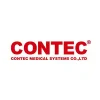Labeling Requirements for Imported Medical
Understanding the labeling requirements for imported medical devices is crucial for anyone bringing these essential products
Read MoreAt ELT Corporate Pvt Ltd, we are experts in medical device registration in India, ensuring compliance with CDSCO standards under the Ministry of Health & Welfare.
Our team comprises skilled attorneys, scientists, engineers, and regulatory professionals who have facilitated over 2500+ regulatory licenses with expedited efficiency.
As trusted members of AIMED, ASSOCHAM, FICCI, and ICC, we emphasize transparent communication and a proactive approach. Trust us to guide your medical device compliance every step of the way.





































Medical Device Registration is a regulatory process that includes the submission of information and documents to a government agency and regulatory authority. The process is done to obtain approval or authorization to market and distribute medical devices in a particular jurisdiction. It is necessary to ensure safety, efficacy, and quality standards.
Medical devices in India are classified into four categories based on the risk they pose to the patient:

It ensure that your products meets the health regulations. This helps you to avoid the legal troubles and fines. Allows you to sell your devices legally.
Expand the market with the registered devices. You can easily sell your products in more countries to reach a wider audience. This results in more business and sales opportunities.
Registration of the medical devices shows that product is safe and reliable. This builds trust with doctors, patients, and consumers, making your products more attractive compared to unregistered competitors.
Contact us via call or form
Provide Documents
Get your certificate
At ELT Corporate PVT Ltd, we are dedicated to ensuring compliance and excellence. Our commitment drives positive outcomes and superior results for our clients.
Understanding the labeling requirements for imported medical devices is crucial for anyone bringing these essential products
Read MoreAre you a medical device manufacturer, importer, or startup looking to introduce your innovative products to
Read MoreGetting a medical device loan license in India is a smart strategy for businesses looking to
Read MoreAre you looking for smarter ways to support regulatory submissions, post-approval changes, and clinical justifications for
Read MoreAre you a medical device manufacturer, importer, or a startup looking to understand the future of
Read More
Yes, After October 1, 2021 every medical device need to registered. Before importing devices in India medical device import license with the CDSCO is mandatory.
The manufacturer of medical devices, authorized agent or authorized representative, and importers can submit the form for the registration of CDSCO.
To register Medical devices in India every product category have different time duration such as:-
Medical Devices are classified into 4 categories in India accordance:-
It is devices according from low risk Class A to high risk Class D.
We are here to assist you Regarding Medical Device Registration.